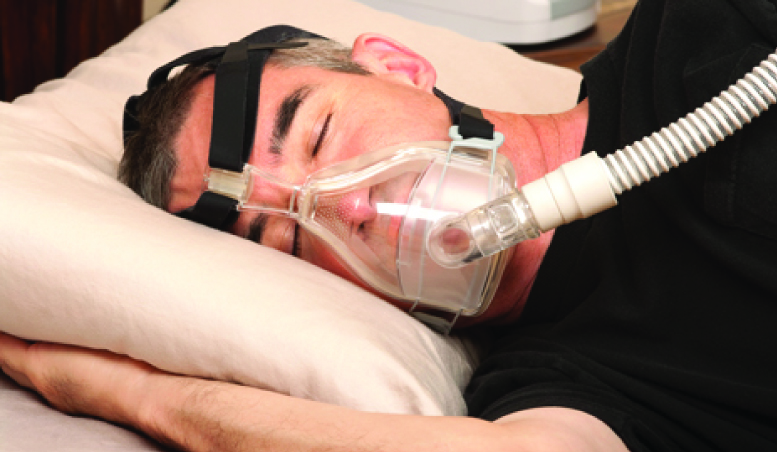 David O. Volpi, MD, PC, FACS
David O. Volpi, MD, PC, FACS Attention families of people with obstructive sleep apnea (OSA): you can make a positive difference when it comes to your family member’s use of a Continuous Positive Airway Pressure (CPAP) machine to treat their OSA.
According to new research published in May in the American Academy of Sleep Medicine’s journal, Sleep, married people with OSA, or those living with a partner, showed better use of their CPAP machine after the first three months of treatment than OSA sufferers who were single.
Additionally, those who rated their family relationship quality as higher also showed better adherence to CPAP therapy. The results were adjusted for potential confounding factors including age, gender, and body mass index.
Here’s a refresher on what OSA is, and how CPAP therapy can help: When you fall asleep, your muscles relax, and the soft palate at the back of the throat can sag. When this happens, the upper airway can become obstructed, causing the soft palate and uvula to vibrate, causing snoring.
When the airway is completely obstructed, breathing stops for a period of time, until the body is jerked awake in reaction. This is obstructive sleep apnea. OSA can cause interrupted breathing hundreds of times a night, usually around 20 seconds per pause.
This paused breathing causes waking through the night, preventing deep, restorative sleep. This often leads to a host of problems, from daytime sleepiness and reduced job performance, to hypertension, heart disease, mood, and memory problems.
A CPAP machine helps this condition by pumping a continuous flow of air into the nasal passages — via a mask worn at night — keeping the airway open, and preventing or greatly reducing snoring and paused breathing.
In addition to improving paused breathing and reducing snoring, CPAP treatment also reduces systemic inflammation, a common side effect of OSA. Systemic inflammation is inflammation of blood vessel tissues caused by foreign elements, such as pathogens or damaged cells.
Despite its effectiveness, the problem with CPAP therapy is that the patient has to wear an oxygen mask while they sleep at night. Many people find this uncomfortable, so they don’t wear it and subsequently don’t get the benefits of OSA treatment they need.
In an effort to increase CPAP therapy adherence, this study is great news. Family support from loved ones can increase a patient’s treatment and benefits.
If you or someone you know is considering or struggling with CPAP treatment, a qualified sleep specialist can recommend the correct CPAP machine, or one of the many non-surgical in-office treatments. Visit the eOs sleep apnea treatments page for more information.
Read the full study, “Family support may improve adherence to CPAP therapy for sleep apnea.”
No comments:
Post a Comment